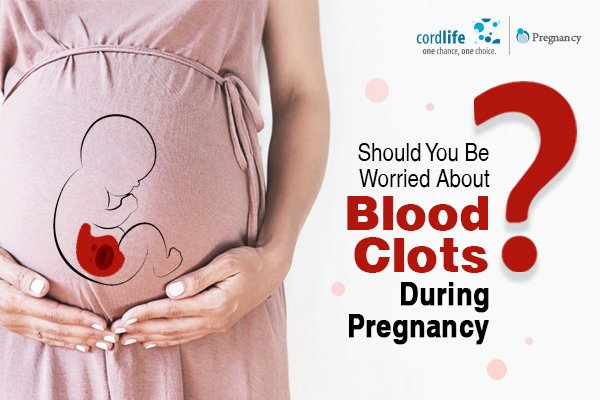Table of Contents
While movies and series show pregnancy to be nothing more than a big belly and some cravings, it is different for every woman in real-life pregnancy. Some mommies seem to breeze through their trimesters; others go through a rollercoaster journey filled with morning sickness, mood swings, food aversions, placenta previa, and so on. However, few of these are more than just mild discomfort. If ignored, they can manifest into more significant problems that put both you and the baby at risk. One of these conditions is a blood clot that can grow too big or rupture into the bloodstream if untreated.
Understanding Blood Clots
Blood clotting is a sign of a healthy body. When there is tear in the skin and blood starts flowing, the platelets in the blood rush to the injury site and begin repairing the tear. They act as a natural plug to prevent excessive blood loss. These clots usually breakdown after a while on their own without causing the body any harm. However, sometimes these clots get formed deep within the veins causing a condition known as Deep Vein Thrombosis. This type of clot is usually seen in the pelvis or leg of pregnant women. There is also a higher risk of these clots breaking away during pregnancy and travelling through the bloodstream to other parts of the body. Sometimes, clots can make their way up to the lungs (Pulmonary Embolism) and end up blocking the blood flow. It is one of the major causes of pregnancy-related deaths.
Who is at risk of developing blood clots?
Pregnancy causes the blood in your body hypercoagulable, which means the proteins in the blood make it thicker than usual, causing them to clot more easily. Also, there is more pressure on the veins in the lower abdomen region caused by the growing uterus. While any pregnant woman can develop a blood clot, some are at more risk than others. Let’s take a look at these risk factors:
- Inherited blood clotting disorders
- Pre-existing medical conditions like Lupus, Sickle Cell Disease, etc.
- Pregnant with multiples
- Obesity
- Late pregnancy (over the age of 35 years)
- Sedentary lifestyle
- Prolonged immobility
- Bed rest
- Smoking
What are the symptoms of blood clots?
There is a difference in the symptoms based on the type of blood clot you have developed.
Symptoms of Deep Vein Thrombosis:
- Swelling in the affected leg or pelvic region
- Tenderness or pain
- Skin around the affected area appears red and feels warm
- The vein appears bigger than usual
Symptoms of Pulmonary Embolism:
- Shortness of breath
- Shooting pain in the chest that gets worse while breathing
- Faster heartbeat
- Blood while coughing
What to do to lower the risk of blood clots:
Prevention is the best way to lower your risk of blood clot during pregnancy. Here are a few things that will help you:
- Compression stockings or compression devices help regulate the blood flow in the affected area. Wear them every day to stop the blood from clotting.
- Stay hydrated. Make sure you drink plenty of water throughout the day.
- Exercise regularly to improve the blood circulation in your body.
- Quit smoking as it puts you at risk
- Consult your doctor for anticoagulation or blood-thinning medication to stop your blood from clotting.
- Don’t sit for long periods. Get up and move about at regular intervals.
Follow these tips to prevent blood clotting in your body and reduce the risk for yourself and your baby. In case you experience any of the symptoms of blood clotting, do speak to your doctor immediately. Stay alert, stay active and have a safe pregnancy!
